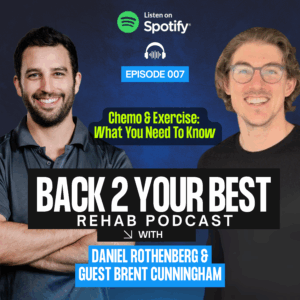When it comes to achieving goals in rehab, fitness, and health, we often think of dramatic changes—intense workout regimens, strict diets, or complete lifestyle overhauls. However, the real power lies in small, consistent habits. These seemingly minor actions, when repeated regularly, can lead to significant, lasting improvements in your well-being.
The Compound Effect: How Small Habits Lead to Big Results
Small habits might not seem like much on their own, but over time, they add up to substantial progress. This concept, known as the compound effect, shows that the incremental benefits of small habits can lead to remarkable changes in your health, fitness, and recovery.
How does this work in practice?
- Consistency Over Intensity: One of the biggest barriers to success in rehab and fitness is burnout. People often start with intense efforts that are hard to sustain. Small habits, on the other hand, are easier to maintain and can be done consistently over the long term. For example, committing to a daily 10-minute stretch routine is more sustainable and beneficial than sporadic, intense workout sessions.
- Building Momentum: Small habits help build momentum. Each small success boosts your confidence and motivation, making it easier to take on bigger challenges. This is especially important in rehab, where gradual progress is key to recovery. Whether it’s taking a short walk each day or doing simple exercises prescribed by your therapist, these small steps lay the foundation for bigger gains.
- Creating a Positive Feedback Loop: Small habits create a positive feedback loop. When you see progress, no matter how small, it encourages you to keep going. This positive reinforcement helps solidify the habit, making it an automatic part of your daily routine. Over time, these habits become ingrained, requiring less effort to maintain.
The Role of Small Habits in Rehab
Rehab is a journey that often requires patience and persistence. Small habits are particularly powerful in this context because they focus on gradual improvement, which is essential for effective recovery.
Key small habits for successful rehab:
- Daily Movement: Even if it’s just a few minutes, incorporating daily movement into your routine can prevent stiffness and promote healing. Whether it’s a gentle stretch, a short walk, or specific rehab exercises, daily movement helps maintain progress and prevent setbacks.
- Mindful Breathing: Incorporating mindful breathing into your day can help manage pain and reduce stress, which are critical for successful rehab. A few minutes of deep, focused breathing can relax your muscles, lower your heart rate, and improve your mental state.
- Hydration: Drinking enough water each day supports the healing process. Proper hydration helps keep your muscles and joints lubricated, reduces inflammation, and aids in nutrient delivery to damaged tissues.
Small Habits in Fitness: Building a Sustainable Routine
When it comes to fitness, small habits can help you build a routine that’s sustainable and effective. Rather than trying to overhaul your entire lifestyle overnight, focus on manageable changes that can be maintained over time.
Small habits for fitness success:
- Daily Activity: Incorporate small bursts of physical activity into your day. This could be taking the stairs instead of the elevator, doing a quick set of squats during a break, or going for a short walk after meals. These small activities add up, improving your fitness without requiring significant time or effort.
- Strength Training: Start with just a few minutes of strength training each day. Even a short routine of bodyweight exercises can build muscle and increase strength over time. The key is consistency, not intensity.
- Nutrition Tweaks: Instead of trying to follow a strict diet, make small changes to your eating habits. For example, add an extra serving of vegetables to your meals, swap sugary drinks for water, or start your day with a healthy breakfast. These small adjustments can lead to better nutrition and improved fitness.
Health Benefits of Small Habits: Long-Term Wellness
Small habits are not just about immediate results; they’re about creating a lifestyle that supports long-term health and wellness. By making small, positive changes, you can improve your overall health and reduce the risk of chronic diseases.
Small habits for long-term health:
- Sleep Routine: Establish a consistent sleep schedule by going to bed and waking up at the same time each day. Quality sleep is crucial for recovery, fitness, and overall health. Even small changes, like reducing screen time before bed or creating a relaxing bedtime routine, can significantly improve sleep quality.
- Mindful Eating: Practice mindful eating by paying attention to your hunger cues, eating slowly, and savoring your food. This small habit can prevent overeating, improve digestion, and help you maintain a healthy weight.
- Stress Management: Incorporate small stress-relief practices into your daily routine, such as a few minutes of meditation, deep breathing, or a short walk in nature. Managing stress is essential for both mental and physical health, and small habits can make a big difference.
Embracing Small Habits for Big Change
The beauty of small habits is that they are achievable and adaptable. They don’t require drastic changes or significant willpower, making them easier to stick with over the long term. Whether you’re focusing on rehab, fitness, or overall health, small habits provide a sustainable path to success.
Start by identifying one small habit you can incorporate into your routine today. As you build on this habit and see the benefits, you’ll be motivated to add more. Over time, these small actions will accumulate, leading to significant improvements in your health, fitness, and overall well-being.
Check out James Clears excellent presentation on change and habit formation below!




